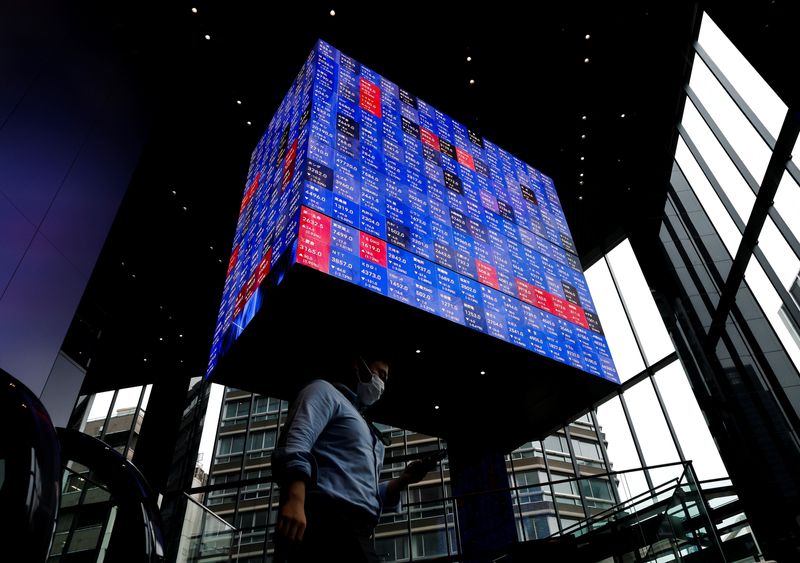By Elizabeth Howcroft
LONDON (Reuters) -European stock indexes fell on Monday, the euro dropped below 99 cents for the first time in twenty years and European gas prices surged after Russia said its main gas supply pipeline to Europe would stay shut.
Gas deliveries had been due to resume on Saturday, but Russia scrapped that deadline on Friday and did not give a new timeframe for re-opening. The news stoked fears of a recession in Europe, with businesses and households hurt by sky-high energy prices.
European gas prices jumped as much as 30% as the market opened.
Germany announced on Sunday around $65 billion of support to help protect Germans from rising costs.
Finland and Sweden also announced plans to offer liquidity guarantees to power companies. Finland's economic affairs minister warned of the possibility of "kind of a Lehman Brothers" in the energy industry, referring to the 2008 collapse of what was then the fourth-largest U.S. investment bank.
Nomura economist George Buckley said it is uncertain how much the support packages from European governments will mitigate the energy crisis.
"The impact of what's happening from energy is absolutely enormous, so I think the bigger risk is that it's just simply not possible - like COVID - you can do a lot to help but you can't offset it."
European Union energy ministers will meet on Sept. 9 to discuss options to rein in soaring energy prices, including gas price caps and emergency credit lines for energy market participants.
At 1414 GMT, the MSCI world equity index, which tracks shares in 47 countries, was down 0.4% on the day. Europe's STOXX 600 was down 0.8%, having recovered slightly after approaching a seven-week low earlier in the session.
London's FTSE 100 was 0.1% lower and Germany's DAX was down 2.3% on the day.
A public holiday in U.S. markets means lower liquidity, which could lead to outsized market moves.
The euro was trading around $0.9925, down 0.3% on the day. It slid during Asian trading hours and hit $0.9876 in early European hours, its lowest since 2002.
Euro zone government bond yields rose, with Italian 10-year yields heading towards 4%.
The European Central Bank (ECB) meets later this week and is expected to deliver its second big rate hike in an attempt to combat inflation, which is running at more than four times its 2% target.
"Sky-high energy prices, the risk of gas shortages and the fiscal and regulatory response will shape the outlook for euro zone GDP and inflation much more than anything the ECB may do with rates," Berenberg chief economist Holger Schmieding said in a client note.
In the UK, Liz Truss was named as Britain’s next prime minister, taking power at a time when the country faces a cost of living crisis, industrial unrest and a recession. In her victory speech Truss said she planned to cut taxes and deal with energy bills.
The British pound was down around 0.1% at $1.15125, but slightly up against the euro at 86.275 pence.
The U.S. dollar index was little changed, while the risk-sensitive Australian dollar was near a seven-week low.

Oil prices rose more than 3%, extending gains as OPEC+ producers agreed a small oil production cut to bolster prices.
Euro area PMI survey data showed that Germany's services sector contracted for a second month running in August. France's service sector eked out modest growth, though purchasing managers there said the outlook was bleak.